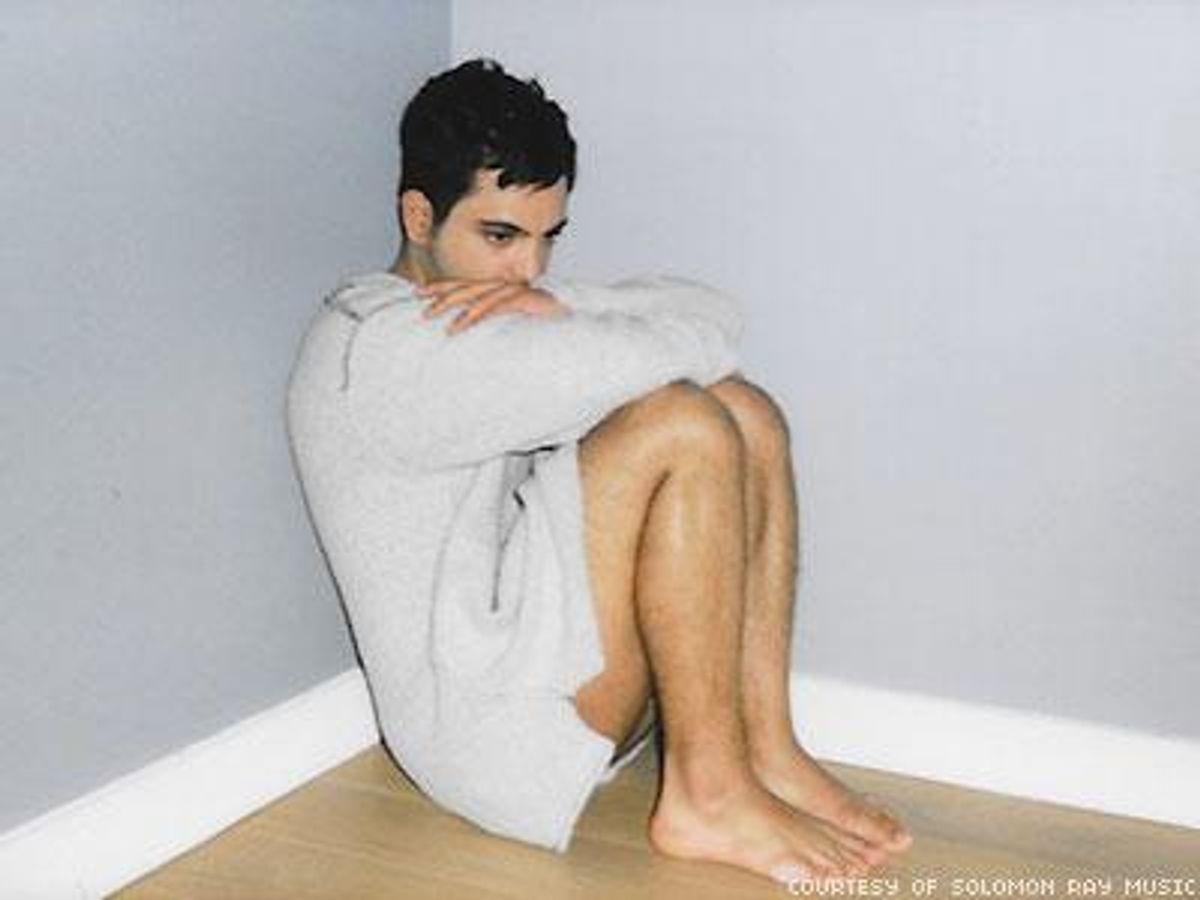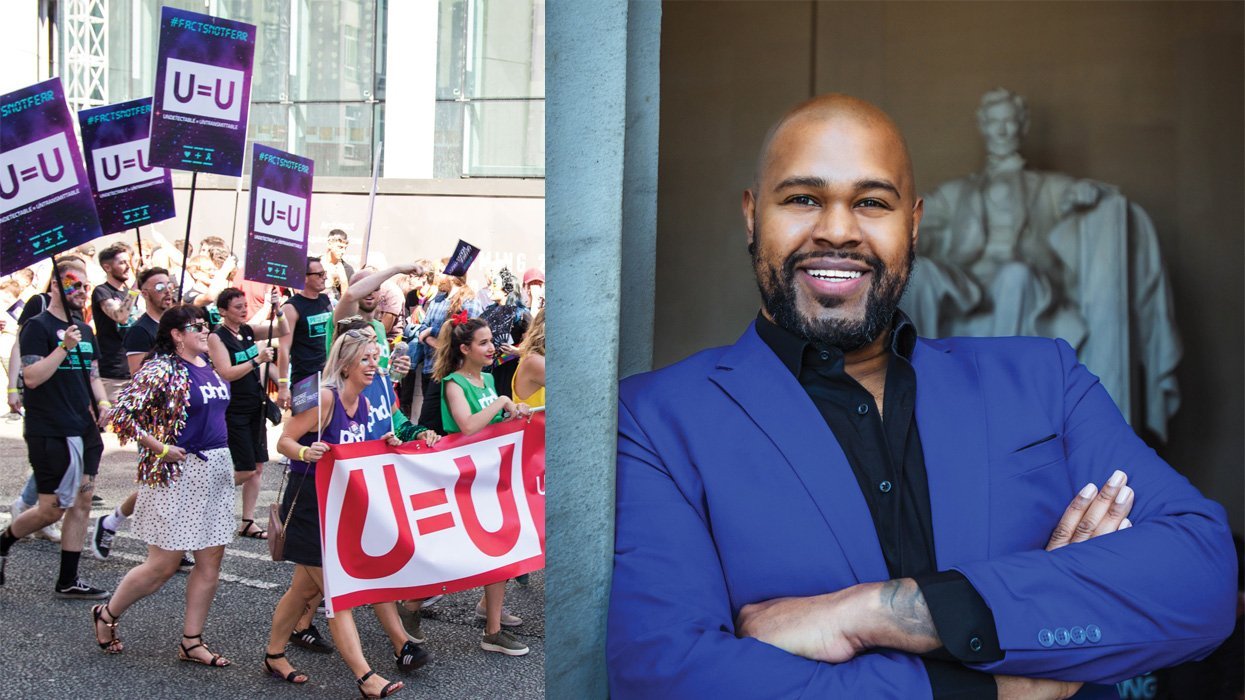Born Solomon Raymond Barnett in 1991 to a mixed-heritage San Diego couple (his mother is African-American and his father is Latino), Solomon released two street mixtapes in 2008 that generated massive Internet buzz, selling more than ten thousand copies. The electronic hip-hop recording artist with pop star flair went on establish his own recording company, SolRay, and to release several EPs, including 2014’s Le Garçon (‘The Boy’ in French).
Calling Le Garçon his “darkest work yet,” Solomon told San Diego Gay Lesbian News at the time, “I went through a breakup, but I noticed how distant and closed off I became. I had a hard time writing songs, because I couldn't feel anything. I wasn't sad but I wasn't happy. I just didn't feel anything. I was so traumatized I think I turned my emotions off to protect me. So, long story short I had a breakthrough one night and my emotions came back, I wrote, 'The Way We Were' and everything started from there. There’s a lot of anger and aggression in this piece that wasn't in my previous work.”
His video to ‘The Way We Were,’ the first single released from that EP, was picked by Vevo as one of their top five R&B songs and iTunes hailed Le Garçon as one of 2014’s "best new releases by a new artist," specifically calling out the singles, “Swim No More” and “Crash Into You.”
But, in July 2014, Solomon took to Facebook to announce his retirement from music, posting, “After five months of debating this, against everyone’s advice… I’ve decided to go a different route with my creativity. Making music was fun, and was so fulfilling. I don’t want to continue if the possibility of those beautiful moments would be tarnished.”
As if to reiterate his intention to walk away from his old life, he died on film. When he released his final music video — for “Crash Into You” — it featured Solomon dying in a shower scene.
Solomon told 2BMag.com that the video was, “more about reincarnation than death,” but the lyrics revolve around the heartbreak of love lost and reveal a more vulnerable side to an artist who was till then best known for edgy, hard-hitting beats and occasionally bellicose lyrics.
“I’m too honest when it comes to my lyrics,” Solomon told 2BMag, reflecting on his music career. “I could have never made music for six years and lied about who I am…Managers, labels, publicist have all told me if I didn’t come out as gay I would be further in my career. But I choose not to reflect on that. That has such a negative connotation and it’s almost insulting. I know when I’m at the end of my life and look back on everything I’ve done, this chapter I will be so proud of. My music will be one of my contributions to society and my community.”
With that, Solomon left the stage. But, like the zombie hordes of horror films, Solomon wouldn’t stay dead long.
Last month he released a statement announcing his resurrection as a "transformed" musician. Christening his new incarnation Solomon Ray, he released a beautiful cover of Beck’s, “Guess I’m Doing Fine,” and posted photos of a new look.
Stepping away from the polished image and colorful hairstyles he cultivated in his old life, the new images show Solomon vulnerable and (in some cases, literally) stripped bare. They were images of a man who had battled depression and come out wiser and more honest than ever. Will this turn away from artifice in favor of muted reality be reflected in Solomon Ray’s music?
“The music I’m doing now is different and more refined," Solomon told Plus. "I can’t group it together with my older stuff. So I felt a new name was appropriate. Still Solomon, but just a different ending.”
Looking back now, Solomon realizes he slipped into a deep depression almost immediately after releasing Le Garçon. Unlike previous heartbreaks, Solomon says he struggled to pinpoint the cause of this depression.
“Suddenly I was really really sad and I didn’t know why,” Solomon tells Plus now. “I started hating everything about music. I was upset and sad with the music industry. I felt defeated and unappreciated. Ultimately I think I was burned out and needed a break. Making music is what I love to do. That’s it. So I was at a point where I’m granted this amazing opportunity to make art, but I felt it wasn’t fully heard or appreciated.”
Doubts about his musical talents (“Maybe I wasn’t the best producer? Or the best lyricist?”) bled into concerns about his appearance and more. “Are my cheeks too chubby? Do I need to have a six pack? Maybe I should have never said I was gay?”
Comparing himself to popular celebrities certainly didn’t help. “I would see people garnering a ton of attention,” Solomon says. “And I was unsure what merited that acclaim.”
He even consideed a drastic step, asking himself, “If I made a sex tape would people listen to my music?”
Things just spiraled down from there, he says. “It all started to weigh down on me. I hated waking up. I didn’t care about promoting my music anymore. It was like, 'What is the point?'”
He says it was at that when his depression was the most profound he began to understand the draw of taking illegal drugs.
“I used to get so mad when I would think about Michael Jackson, Whitney Houston, Kurt Cobain, and others who turned to substance abuse,” Solomon recalls. “If God gave you this talent and you have this amazing platform, why are you jeopardizing it? It wasn’t until last year, when I found out. It all made sense.”
The appeal of drugs may be genetic, as well. “My biological mother was a drug addict,” Solomon admits. So when he started to “think how easily I could go down that path,” he says it scared him into action.
“So I took a break from music.”
So what happened between his departure and his reincarnation?
In some ways, he never exited the stage. Redirecting his creative talents, Solomon promoted himself as a singer/actor, moved to New York and was cast in a “Broadway-bound musical.”
Then, Solomon abruptly quit. The artist admits he walked out during the first week of rehearsals. “I didn’t even tell the director or producers I quit. I looked around and knew this wasn’t for me.”
Now back in the studio working on new music, Solomon says his break — and reconnecting with old friends— was just what he needed. “I’m the type of person who can’t be sad around other people. I’d rather be comedic and make them laugh. So being around other people helped me a lot.”
He felt drawn back to music both as a means of processing his depression (“I’ve always used my music as a form of therapy,” Solomon says) and to connecting with his fans.
“I forgot so many people love what I do,” he says. “They use my lyrics to get through their sad moments. Just like when I was a teenager listening to Beck…I had to trust in my art and let everything else go.”

















































































